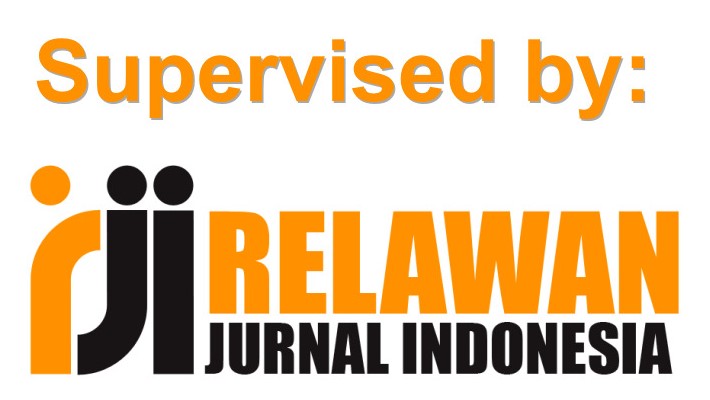The Simulation of English Listening as Part of of the National Examination
DOI:
https://doi.org/10.31100/matappa.v4i1.912Keywords:
English, listening, national examination, madrasahAbstract
English is a subject in the national examination for senior high school students. As a foreign language, learning English gives some obstacles. This article is written to describe a project of community engagement namely a simulation of the English listening section as a part of the national examination. This project was conducted in Madrasah Aliyah Darud Da’wah Wal-Irsyad Baruga Majene by a collaborative team, which consists of the lecturers and the students of the English Language Education Department of Majene State Islamic College. The participants are third-grade students. The simulation was conducted as same as the real test using the Hot Potatoes. The result of the simulation showed that students’ achievement did reach the passing grade namely 55. There are ten basic competencies implied in fifteen number. But the students only can choose the correct answer from questions that reflected four bacis competencies with the highest average score namely 63. Unfortunately, the students cannot reach other competencies. It seems that the students need more practice and learning activities.
References
Abrar, M., Mukminin, A., Habibi, A., Asyrafi, F., Makmur, M., & Marzulina, L. (2018). “If our English isn’t a language, what is it?" Indonesian EFL Student Teachers’ Challenges Speaking English. Qualitative Report, 23(1), 129–145.
Almarabeh, H., Amer, E. F., & Sulieman, A. (2015). The Effectiveness of Multimedia Learning Tools in Education. International Journal of Advanced Research in Computer Science and Software Engineering, 5(12), 761–764. https://www.researchgate.net/publication/290429349_The_Effectiveness_of_Multimedia_Learning_Tools_in_Education
Amalia, F., Kurniawan, T. A., Rahayudi, B., & Brata, A. H. (2019). Pelatihan Penulisan Jurnal Ilmiah pada Guru Sekolah Menengah Kejuruan. Jurnal Pengabdian Kepada Masyarakat (Indonesian Journal of Cummunity Engagement), 5(3), 318–330. https://doi.org/http://doi.org/ 10.22146/jpkm.42482
Boonying, V. (2015). Polices and Strategies for Promoting of Foreign Language Teaching and Learning in Asean + 3 Counties : a Case Study of Vietnam. Journal of Teaching and Education, 2(4), 89–96. http://www.universitypublications.net/jte/0204/pdf/M3K103.pdf
Date, P. U. B., Type, P. U. B., & Price, E. (2001). Chinese Interference in English Writing : Cultural and Linguistic Differences Harvard Graduate School of Education.
Hamouda, A. (2013). An Investigation of Listening Comprehension Problems Encountered by Saudi Students in the EL Listening Classroom. 2(2), 113–155.
Hidayat, N. (2018). KURIKULUM MATA PELAJARAN BAHASA ARAB. Manhaj: Jurnal Penelitian Dan Pengabdian Masyarakat, 3, 70–91. https://ejournal.iainbengkulu.ac.id/index.php/manhaj
Kemendikbud. (2019). Laporan Hasil Ujian Nasional. https://hasilun.puspendik.kemdikbud.go.id/
Maisaroh, S. (2018). INTERFERENSI SINTAKSIS BAHASA IBU TERHADAP KETERAMPILAN BERBICARA BAHASA ARAB (Studi Kasus Mahasiswa Pendidikan Bahasa Arab STAI Syaichona Moh. Cholil Bangkalan). Jurnal Pendidikan Dan Pranata Islam SYAIKHUNA, 9(2), 157.
Pasupathi, M. (2013). Analyzing the Effect of Technology-Based Intervention in Language Laboratory to Improve Listening Skills of First Year Engineering Students. Profile Issues in Teachers’ Professional Development, 15(1), 125–138.
Undang-Undang Republik Indonesia No 20 Tahun 2003 tentang Sistem Pendidikan Nasional, Pub. L. No. 20, 6 (2003).
Satrisno, H., & Friantary, H. (2019). Pola Pembelajaran Pendidikan Agama Islam Dalam Pendidikan Inqlusi Bagi Anak Yang Berkebutuhan Khusus (ABK) di SDIT Al Aufa Kota Bengkulu. Manhaj: Jurnal Penelitian Dan Pengabdian Masyarakat, 4(1), 1. https://doi.org/10.29300/mjppm.v4i1.2371
Saukah, A., & Cahyono, A. E. (2015). National Exam in Indonesia and Its Implications To the Teaching and Learning of English. Jurnal Penelitian Dan Evaluasi Pendidikan, 19(2), 243–255. https://doi.org/10.21831/pep.v19i2.5583
Sugono, D., Utomo, I. B., Hardaniwati, M., & SUbiyatningsih, F. (2011). The language attitude of border peoples: Insular Riau, West Kalimantan, East Kalimantan, North SUlawesi, and Eastern SUnda Islands. Wacana, 13, 166–184. https://doi.org/10.17510/wjhi.v13i1.14
Sujana, I. M., Andayani, Y., Baidowi, Ilhamdi, M. L., Suryanti, N. M. N., & Mari’i. (2016). Analisis Hasil Ujian Nasional Bahasa Inggris SMA dan Pengembangan Model Peningkatan Mutu Pembelajaran Bahasa Inggris di Provinsi Nusaa Tenggara Barat. Jurnal Ilmiah Profesi Pendidikan, 1(No. 2 November), 211–224.
Winkle, P., & MacGregor, D. (2001). Review of Hot Potatoes. Language Learning & Technology, 5(ISSN 1094-3501), 28–33. https://doi.org/10.1525/bio.2010.60.10.17
Wiryani, I., & Wardhani, I. Y. (2016). Ansietas Menghadapi Ujian Nasional pada Siswa SMP dan SMA. Jurnal Keperawatan Indonesia, 19(1), 1–7. https://doi.org/10.7454/jki.v19i1.432
Yunhadi, W. (2016). Quality of Listening Test Validity of the National Leaving Exam for SMA. JARES, 1(1), 33–44. https://doi.org/10.1017/CBO9781107415324.004
Downloads
Published
Issue
Section
Citation Check
License
Jurnal ini memberikan akses terbuka langsung dengan prinsip bahwa membuat penelitian tersedia secara bebas untuk publik mendukung pertukaran pengetahuan global yang lebih besar.
Semua artikel yang diterbitkan dapat di Akses secara Terbuka atau Gratis untuk semua orang baik untuk dibaca maupun diunduh di bawah lisensi CC-BY.
Ppenulis mempertahankan kepemilikan hak cipta untuk artikel mereka, tetapi penulis memberikan izin kepada orang lain untuk menggunakan konten publikasi di Matappa secara keseluruhan atau sebagian asalkan karya aslinya dikutip dengan benar.
Hak cipta mencakup hak eksklusif untuk mereproduksi dan menyampaikan artikel dalam semua bentuk dan media, termasuk cetak ulang, foto, mikrofilm dan reproduksi serupa lainnya, serta terjemahan. Reproduksi bagian manapun dari jurnal ini, penyimpanannya dalam basis data dan transmisi dengan bentuk atau media apa pun, seperti elektronik, salinan elektrostatik dan mekanik, fotokopi, rekaman, media magnetik.

MATAPPA is licensed under a Creative Commons Attribution 4.0 International License.








